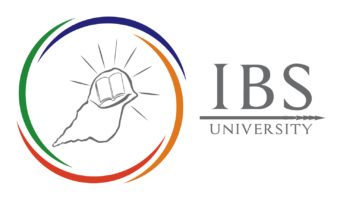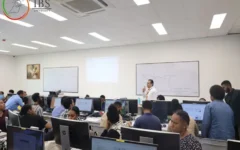Who Shook The Jar?
February 18, 2025 2025-02-18 15:40Who Shook The Jar?
Imagine placing 100 black ants and 100 fire ants into a jar. At first, nothing happens. They coexist peacefully, each going about its own business. But what if someone shakes the jar violently and then leaves it on the table? Suddenly, chaos erupts. The red ants see the black ants as enemies, and the black ants see the red ants as threats. A battle begins, yet neither side realizes the real enemy is not the other—it’s the one who shook the jar.
This simple analogy, often attributed to Mark Twain, carries a powerful lesson about society. We often find ourselves divided—men versus women, young versus old, race versus race, faith versus science. But before we engage in these conflicts, we must pause and ask, Who shook the jar?
The Reality of Division
In today’s world, division is everywhere. It plays out in politics, workplaces, communities, and even within families. Arguments break out over beliefs, traditions, and perspectives. Social media amplifies these divides, making it easier to take sides rather than seek understanding.

But what if many of these divisions are not as natural as they seem? What if someone, somewhere, benefits from the chaos? Just like the ants in the jar, we may be reacting to an unseen force that has set things into motion.
Recognizing the Real Enemy
Instead of immediately blaming the person with an opposing view, it’s important to ask:
- Who benefits from this conflict? Is someone gaining power, control, or money by keeping us divided?
- What forces are influencing our emotions? Are we being manipulated by selective news, social media trends, or misleading narratives?
- Are we looking at the wrong things? Are we being distracted from real issues by being encouraged to fight among ourselves?
When people argue about differences, they often forget to look at the bigger picture. Many of the problems in the world—poverty, inequality, injustice—are not caused by everyday individuals but by systems that operate by keeping people distracted and divided.
Choosing Unity Over Conflict

So, how do we stop the cycle?
Here are three simple steps:
I. Think Before Reacting – When you see or hear something that makes you angry, pause. Ask yourself: Is this information meant to divide people?
II. Seek Understanding, Not Conflict – Instead of arguing, try to understand different perspectives. Listen to others with an open mind.
III. See the Bigger Picture – Work towards solutions instead of getting caught up in unnecessary fights. We are stronger together than divided.
The truth is, no matter our differences, we share common goals—happiness, safety, respect, and a better future. If we think about these, we can resist the forces that try to shake our jar.
Bottom Line
Next time you find yourself in a heated debate, take a step back and ask, Who shook the jar? Recognizing the real cause of division can help us choose unity over conflict. We don’t have to fall into the trap set by those who benefit from our fights. Instead, we can choose understanding, kindness, and cooperation.
IBSU Media Team
IBSUniversity
PO Box 5181, Boroko, NCD,
Papua New Guinea
M: +675 7028 8030 | 7411 4100
Editing & Narrative Direction: IBSU Library & Information
Disclaimer: This blog is based on an analogy often attributed to Mark Twain. It is meant to encourage critical thinking and reflection on how divisions arise in society. The views expressed are for discussion purposes and do not target any specific group or individual.







